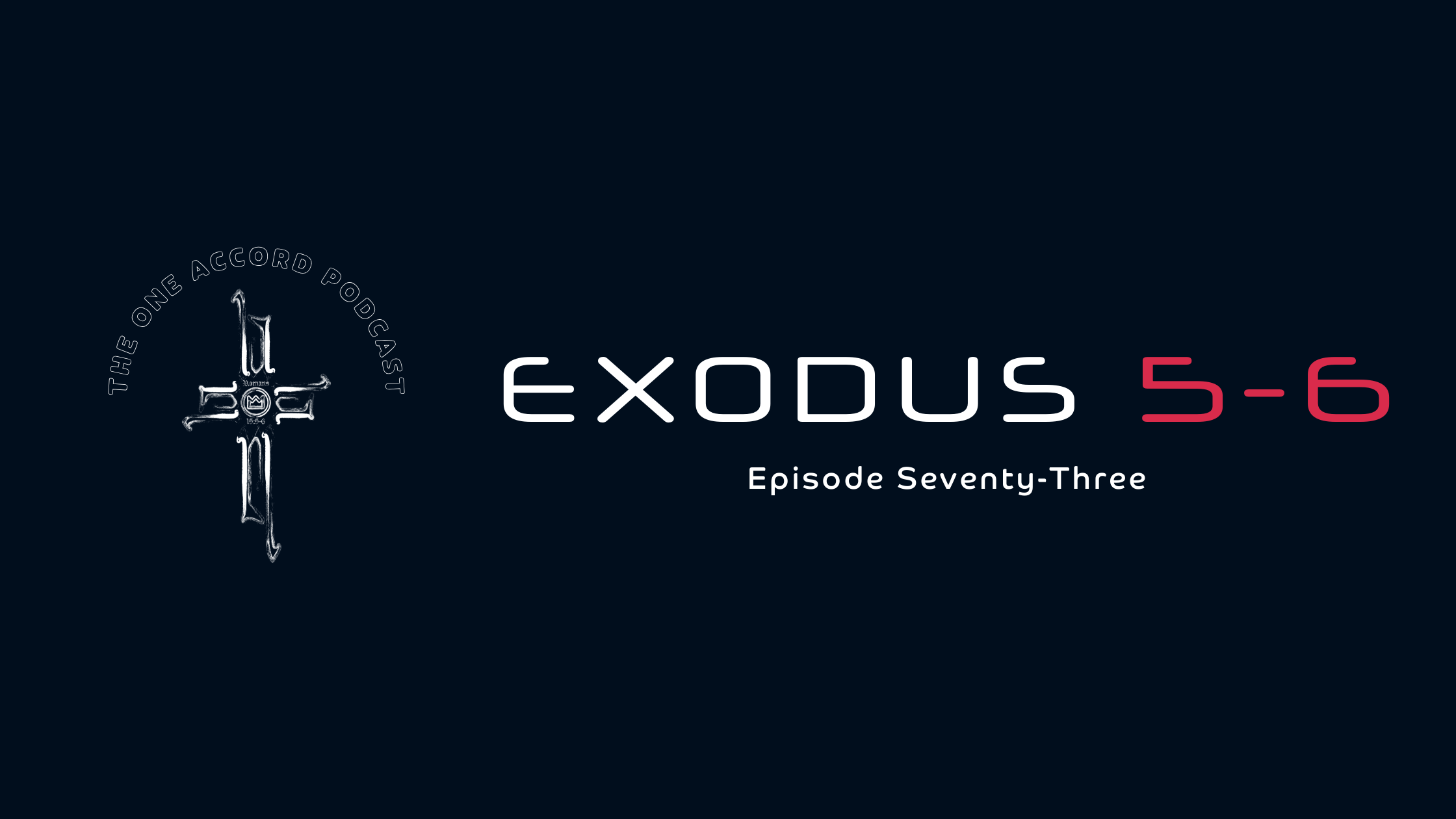Exodus 5-6
Moses’ mission grows harder; Pharaoh refuses to let Israel go, but God’s plan stands firm.
Let’s talk about it.
Summary
In this episode of the One Accord podcast, Joe, Greg, and Eric delve into Exodus chapters 5 and 6, exploring the themes of Moses and Aaron's request to Pharaoh, the burden of labor on the Israelites, and the disappointment they felt towards God amidst their struggles. They discuss the nature of God's plan, the importance of faith, and how human expectations can lead to disillusionment. The conversation emphasizes the need to trust in God's timing and faithfulness, even when circumstances seem dire. In this conversation, the speakers delve into the significance of God's name as revealed to Moses, exploring the implications of this revelation for the Israelites and their understanding of God. They discuss the genealogies presented in Exodus, emphasizing their importance in establishing the historical context and legitimacy of Moses and Aaron as leaders. The conversation also touches on Moses' communication challenges and the figurative language used in scripture to describe God's power. Overall, the discussion highlights the progressive revelation of God throughout the biblical narrative and the importance of understanding the historical and cultural context of scripture.
Key Takeaways
Moses and Aaron's request to Pharaoh was a test of faith.
God's plan often unfolds in unexpected ways.
Disappointment with God can stem from unmet expectations.
The Israelites' labor increased as a result of their request.
God's timing is different from human timing.
Faith is built through trials and waiting.
Moses struggled with understanding God's plan.
The burden of labor can lead to questioning God's faithfulness.
God's miracles are often revealed over time.
Trusting in God's promises is essential for believers. The name of God revealed to Moses signifies a new relationship with Israel.
Genealogies serve to establish legitimacy and historical context in scripture.
Moses' communication challenges reflect his lack of oratory skills rather than a speech impediment.
God's power is often described using figurative language in scripture.
The progressive revelation of God shows His desire for a deeper relationship with humanity.
Understanding the historical context of scripture enhances our interpretation of biblical texts.
The name Yahweh represents a significant revelation of God's character.
Genealogies link biblical events to real people and places, reinforcing the historical nature of scripture.
Moses and Aaron's lineage establishes their authority as leaders of Israel.
The conversation emphasizes the importance of careful interpretation of scripture, recognizing both literal and figurative language.

